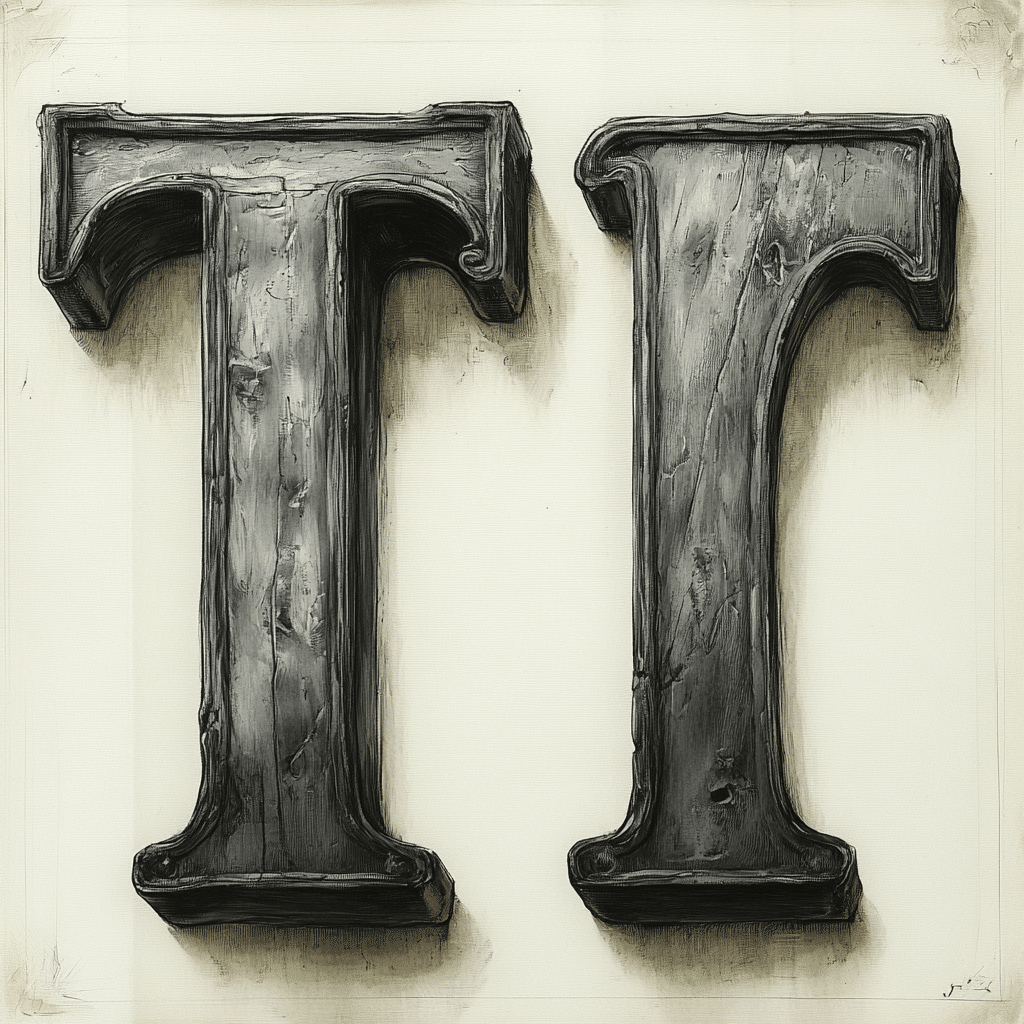In today’s rapidly evolving digital landscape, the emergence of deepfake technology has sparked a profound ethical debate, stirring concerns about privacy, trust, and the very fabric of reality as we perceive it. The troubling odyssey of Pokimane—a prominent internet personality and Twitch streamer—into the murky waters of deepfake victimization highlights the urgent need for discourse and action in the realms of technology and digital ethics.
Unpacking the Pokimane Deep Fake Conundrum: A Complex Web of Digital Ethics
The rise of deepfake technology can no longer be regarded as mere science fiction. In essence, it’s a sophisticated blend of machine learning and AI that synthesizes human images so convincingly that reality itself seems malleable. While its implications are far-reaching, the case of Pokimane represents a tangible and deeply personal instance of its potential for harm.
Pokimane and the invasion of digital privacy have taken center stage in this discussion. When artificially generated videos mimicking her likeness began to circulate, the affront to her digital persona epitomized a profound violation, one which resonates with eerie familiarity in our interconnected world.
Delving into the technical underpinnings of creating a pokimane deepfake, we grapple with neural networks that, while a marvel of innovation, become instruments of undue influence and dissemination of false narratives when co-opted for unethical purposes.
The psychological impacts on individuals and communities are palpable. From the unsettled angst that any one of us could be next to the collective unease over trust in what we see and hear online, the alarm bells are ringing, and they signal a need for introspection and proactive defense against digital deception.
Deciphering Deep Fakes: Understanding the Tech Behind the Ethical Storm
To truly navigate this ethical storm, we must strip down the complexity of deepfake creation processes. Fundamentally, it’s a matter of datasets and algorithms—a dance of authenticity and artificiality. When it comes to pokimane deepfakes, one might imagine a digital puppeteer, pulling strings made of code to manipulate her digital twin into performances she never gave.
From their inception, the evolution of machine learning algorithms has been relentless, now yielding hyper-realistic deepfakes. Initially conceived to push the boundaries of AI and CGI, they now pose a new kind of threat, especially when social media becomes an accomplice, spreading pokimane deepfakes with viral efficiency that dwarfs any truth’s attempt to catch up.

The Legal Labyrinth Surrounding Pokimane Deepfakes
Grasping the existing laws and regulations addressing deepfake content, it’s evident that legal frameworks are scrambling to keep pace with technological innovation. It’s like watching a game of catch-up where the rules are being written mid-play, and the players—content creators like Pokimane—cling to vulnerable expectations of privacy and respect.
Pokimane’s own legal battle is a glaring case study on deepfake victimization. Her fight through a labyrinthine justice system underscores a need for robust, responsive legislation that can pivot swiftly to deter pokimane deepfake distribution.
The challenge is daunting: adapting laws crafted in a pre-digital age to protect against crimes likely not conceived by their initial drafters. Accordingly, the effectiveness of current legislation requires vigilant assessment and dynamic adjustment to truly safeguard digital identities.
Voices from the Battlefield: Personal and Legal Combatants in the Fight Against Deepfakes
Hearing voices from the battlefield, including interviews with legal experts on pokimane deepfakes, creates a clarion call to action. Each expert narrative weaves a compelling argument for better protection, higher accountability, and severe consequences for transgressors.
Victim impact statements, whether they stem directly from Pokimane or give voice to countless others reeling from deepfake abuse, articulate the human cost of this technological abuse. Their testimonies ring out, demanding attention and justice.
The borderless nature of the internet compounds the problem, bringing to light the challenge of international law enforcement in curbing pokimane deepfakes. It’s analogous to a game of whack-a-mole spanning a globe where legal hammers swing with varied might and speed.
| Category | Description |
| Identity | Pokimane (Imane Anys) |
| Occupation | Twitch streamer and Internet personality |
| Deepfake Definition | Synthetic media in which a person’s likeness is replaced with someone else’s using AI |
| Relevance to Pokimane | Unauthorized and potentially harmful use of her image in deepfake videos |
| Potential Motivations | Harassment, exploitation, defamation, or for viral content |
| Ethical Concerns | Privacy violations, consent issues, damage to reputation, and potential emotional distress |
| Legal Aspects | Potential copyright infringement, violation of image rights, defamation |
| Combating Deepfakes | Advocacy for stricter laws, use of digital watermarks, AI detection tools |
| Impact on Public Image | Possible negative impact on Pokimane’s reputation, misleading her audience or general public |
| Response from Pokimane | May include public statements, legal action, or calls for platform responsibility |
| Platform Responsibility | Efforts to detect and remove deepfake content, enforce terms of service against such misuse |
The Societal Ripple Effects of Pokimane Deepfakes
Consider the moral hazards of fabricating realities: they creep into our collective consciousness with ease, sowing seeds of doubt and disillusionment. Analyzing public perception reveals the troubling reality that, for some, the media response to pokimane deepfakes might be but a spectacle, undermining the severity of their impact.
The creation and spread of pokimane deepfake content point to a significant shift in our discourse about digital ethics. It’s a discourse fraught with questions of consent, freedom, and the murky space where innovation crashes into morality, demanding answers we’re still formulating.
Cyber Societal Consequences: The Larger Implications of Deep Fake Technologies
The implications of deepfakes on truth and trust in the digital age are vast and varied. It’s a new battleground for verifying reality, where content altered with sinister precision can skew public opinion and behavior.
Consider the anxiety coursing through the veins of content creators when pokimane deepfakes become rampant. It’s a struggle to maintain a professional and personal life under the specter of being hijacked digitally. Their individual plights are microcosms of societal turbulence in the digital realm.

Constructing a Framework for Ethical Deep Fake Governance
Shifting from reaction to prevention, we must consider the responsibilities of platforms and content distributors,:
– Ensuring that deepfakes do not slide through the cracks of content policies.
– Upholding the sanctity of digital identity.
Developing ethical guidelines isn’t just an exercise in idealism; it’s a necessity. It’s about plotting a course that sails true north, asserting a steadfast commitment to integrity for creators and viewers of content like pokimane deepfakes.
Moreover, future-proofing policies is less about crystal ball gazing and more about building adaptability and foresight into the very code of our legal and social structures. Just as technology evolves, so too must our defenses.
A Proactive Stance: The Role of Education and Technological Literacy
Illuminating the shadowy recesses of deepfake deception involves more than shining a proverbial flashlight. We need comprehensive initiatives to increase awareness and arm netizens with the skills to discern real from fake.
Moreover, media literacy isn’t merely an elective in the curriculum of digital life; it’s a fundamental skill, like reading or writing, in an age where seeing should not always equate to believing.
Navigating Future Currents: The Ongoing Battle Against Deep Fake Proliferation
We must harness upcoming technological advances aimed at detecting and combating pokimane deepfakes. Such tools are the lighthouses in the fog of an information war, constantly guiding us back to safe harbor—reality.
Meanwhile, the grassroots undercurrent—movements and advocacy groups—represents a swell of collective action address the pokimane deepfake issue. Their voices, combined with the megaphones of digital platforms, can turn the tide against malicious fabrication.
Continued research and discussion on the ethics of deepfakes are akin to an ongoing excavation of moral groundworks. Each new finding contributes to a foundation for digital trust and accountability.
Fostering a Culture of Responsible Creation and Consumption
It’s the dawning of a new age in creation and consumption—one that demands a code of ethics for A.I. developers and data scientists. Their craft, once esoteric, now touches lives intimately, shaping societies and the flow of information.
On an individual level, accountability in the age of pokimane deepfakes is no longer a choice but a charge. We must assert our roles as ethical guardians of content, encouraging creation that reflects our highest values rather than our base impulses.
Visioning a World Beyond Deep Fakes: Constructing Digital Integrity
Rebuilding trust is not just a technical challenge—it’s a call to return to foundational human values. Content creators like Pokimane, in fighting back, blaze a trail for others to follow, setting precedents for future cases and establishing new norms of digital resilience.
The importance of community and collaboration cannot be overstated. It is the very webbing that can shield against the arrows of deceptive representation. Through joint efforts, we can reclaim our digital identities and preserve the integrity that deepfakes threaten to erode.
A United Front: Collective Efforts Led by Content Creators and Influencers
The power of community against pokimane deepfakes emerges when voices join in unison to denounce the perils of synthetic media. Crowdsourced solutions can accentuate the triumph of transparency over deceit.
As we champion authenticity in our online personas and outputs, we must celebrate the instances in which the internet banded together to protect creators from the immoral use of their images and likenesses.
Reimagining Digital Citizenship in the Wake of the Pokimane Deep Fake Dilemma
A digital code of ethics may once have seemed far-fetched, but in the wake of deepfake controversies, such principles appear ever more necessary. We stand at a watershed moment, reflecting on the pokimane deepfake situation and the urgent need for a forward-looking redefinition of digital conduct.
The concept of a digital society grounded in trust, respect, and authenticity isn’t unreachable. It’s a vision that we can build together, a future constructed on solid ethical principles.
Igniting a New Era of Digital Authenticity
In this envisaged future, the specter of deepfakes fades into obsolescence—rendered powerless by pioneering technologies and social practices. This is a world where the values of upcoming generations shine, embedded in the very fabric of our online interactions.
Crafting a Conclusion: Rethinking the Interface of Technology and Morality
In the aftermath of the pokimane deepfake ordeal, a reflection on the ethics of digital creation is not only prudent; it is imperative. As we navigate the intricate relationship between technology and morality, our compass must remain attuned to the tenets of integrity and respect.
Developing a moral compass for the digital frontier is not the work of a moment but the journey of an era, one that demands we foster an online world imbued with honesty and authenticity. Through this dedication, we will not only survive the challenges posed by deepfake technology, but we will truly thrive, underpinning our digital interactions with the timeless values of trust and respect.
The Deep Dive into Pokimane’s Deepfake Saga
Welcome, friends! Let’s cut to the chase and talk about something that’s more buzzworthy than a hive in summertime. Have you heard about the Pokimane deep fake conundrum? It’s a tale that’s as tangled as your earbuds after a jog, and we’re here to untangle it.
The Unsettling Virtual Doppelganger
First off, imagine walking down the street and you spot someone who looks exactly like you. Creepy, right? Now imagine that someone could make a video of you doing things you’ve never done. Welcome to the world of deep fakes! It’s where tech wizardry meets a can of ethical worms.
Pokimane, a big name in the streaming biz, got caught in this web when her likeness was used in unsavory videos without her consent. It stirred up more trouble than a hornet’s nest at a picnic. We’re not just talking about innocent pranks; some were labeled as “Pokimane p o r n“, and trust me, this is no child’s play.
Chasing Shadows in Cyber Ethics
Now, let’s get real. Wrestling with the ethics of deep fakes is like trying to grab a shadow. It’s slippery, elusive, and kind of a dark art. With Pokimane’s situation, it opened a Pandora’s box that had a lot of folks asking, “Just because we can, does it mean we should?” For some insightful musings, consider pondering the “Contexto answer” to this modern dilemma.
A Battle of Wits and Laws
Here’s where things get interesting. Crafting laws to curb this kind of tech abuse is tougher than nailing jelly to a wall. Legal eagle John Lawrence has given his two cents on the matter. According to him, the law’s gotta play catch-up with tech that’s sprinting like it’s in the Olympics.
The Tech Behind the Trickery
Ever wonder what’s the recipe for a deep fake? You mix a pinch of artificial intelligence with a heap of “site Packages“, and voila, you’ve got yourself a digital twin. But just like a recipe for disaster, it can leave a pretty bad taste in your mouth if used for mischief.
The Silver Lining in Digital Skies
It’s not all doom and gloom, though. Some folks, like Ed Boon on his Twitter, use similar technology to tickle your funny bone or drop your jaw with awe-inspiring video game characters. Now that’s a spoonful of sugar helping the medicine go down.
Can’t We All Just Play Pokémon Go?
Remember the good ol’ days when the worst fake out was a Zubat pretending to be legendary in “Pokémon Go news“? Nowadays, we’ve got virtual shenanigans that make those seem like the good old days. Sometimes, you just wish everybody would chill out and go catch some Pokémon instead.
Keep Your Swing on the Digital Green
Lastly, if you think deep fakes are exclusive to the digital realm, think again! Even fashion gets a shout-out with the likes of “golf le Fleur“, blending the digital with the physical in styles that are out of this world.
So, folks, there you have it. The next time you catch a headline about deep fakes, remember it’s a jungle out there, and even the virtual vines can trip you up. Stay savvy, stay ethical, and stay informed. And hey, don’t let the deep fakes bite!






















